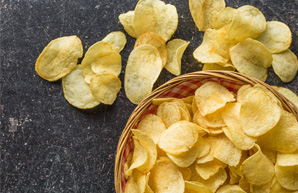Arthritis is swelling of the joints caused by inflammation that brings heat, tenderness, pain, stiffness and immobility. There are more than 100 varieties, but in South Africa the most common are osteoarthritis (affecting more than half of those in urban settings, and 30% to 82% of those over 65 in rural settings, according to the journal SA Family Practice), and rheumatoid arthritis (about 2.5% of people).
Which type of arthritis do you have?
Osteoarthritis (OA) usually sets in slowly with age and was once seen as a result of wear and tear causing degeneration of the protective cartilage covering the ends of bones. Today, however, the Arthritis Foundation says the whole joint is affected, not just the cartilage –bones become weaker, the connective tissue holding them together deteriorates, and inflammation damages the joint lining. "Contrary to decades of belief, inflammation plays a key role in OA, just as it does in most other types of arthritis," says the foundation.
Rheumatoid arthritis, on the other hand, is an autoimmune disease, caused by the body’s own defence system producing enzymes that attack membranes lining the joints. This can happen at any stage and tends to affect joints on both sides of the body symmetrically, such as hips or shoulders.
It’s crucial to get an accurate diagnosis of what’s causing joint pain – a GP can refer you to a rheumatologist who specialises in arthritis, and will advise you on the best treatment or refer you to an orthopaedist, says Julie Martin, community liaison officer of the Arthritis Foundation of South Africa.
Inflammatory fats
The Arthritis Foundation advises limiting omega 6 fatty acids (in corn, peanut, sunflower, safflower and vegetable oils), though they are not harmful in moderation, and saturated fats (animal fat in meat, butter, cream, cheese). It advises cutting back as much as possible on trans fats (in processed foods such as baked goods and pre-packaged meals and snacks), which can be harmful as they raise inflammation levels.
Good to know
Today treatment may range from medication to surgery, but whatever the type of arthritis, it can benefit from not smoking, limiting alcohol, exercising, shedding excess weight, and crucially, eating a balanced diet favouring anti-inflammatory foods. “While these won’t cure arthritis, they may help ease symptoms,” Martin says. The Arthritis Foundation advise the Mediterranean diet as “one of the most researched and anti-inflammatory diets”, focusing on olive oil, whole grains, fruits and vegetables, lean meats, eggs, fish, nuts and seeds. Here are the foods that can worsen your symptoms:
Refined sugar
This triggers the release of cytokines, proteins that can cause inflammation. Limit its consumption, especially in sugar-sweetened beverages. A study of 200 000 women published in the American Journal of Clinical Nutrition found regular consumption of sugar-sweetened soda was associated with raised risk of RA. Read labels and watch for sugar in different guises, such as fructose, sucrose, maltose, corn syrup.
Red and processed meats, and fried foods
Meat is high in saturated fats which cause inflammation, and in AGEs (advanced glycation end products) known to stimulate inflammation, especially when fried or roasted. Other fried foods, such as chips and donuts, also contain trans fats and AGEs.
Refined carbs
White bread or pasta and other white flour products cause a spike in blood glucose when you eat them, and this is known to increase inflammation says Mandisa Mzila, Clicks Wellness Expert and a registered dietician.
For more information, call the Arthritis Foundation of SA helpline at 0861 30 30 30, email [email protected] or visit www.arthritis.org.za

